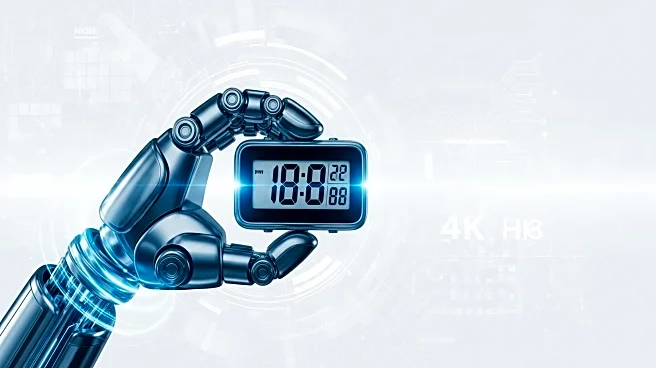What's Happening?
The global job market is undergoing significant changes as artificial intelligence (AI) becomes increasingly integrated into business operations. Major companies such as Accenture, Tata Consultancy Services (TCS), Microsoft, Meta, Intel, Amazon, Google, and Panasonic are implementing substantial workforce reductions. Accenture has laid off approximately 11,000 employees, while TCS has reduced its workforce by around 12,000, with reports suggesting the actual number may be closer to 30,000. Microsoft and Meta are also cutting thousands of jobs, focusing on AI innovation and efficiency. Panasonic has announced 10,000 job cuts as it shifts focus to AI, biometrics, and energy storage technologies. These layoffs highlight the growing influence of AI in reshaping industries and the workforce.
Why It's Important?
The widespread adoption of AI is transforming industries, leading to significant workforce reductions as companies seek to optimize operations and reduce costs. This shift underscores the urgent need for employees to upskill and adapt to an AI-driven future. The impact is not limited to the tech sector; companies across various industries are reevaluating their workforce strategies in response to AI advancements. As businesses prioritize AI integration, the balance between human labor and machine intelligence is rapidly evolving, presenting both challenges and opportunities for workers and employers alike.
What's Next?
As AI continues to reshape the workforce, companies are likely to further streamline operations and focus on AI-driven innovation. Employees will need to reskill to remain competitive in an increasingly automated job market. Businesses may invest in training programs to help workers transition to new roles that complement AI technologies. The ongoing transformation may also prompt discussions on the ethical implications of AI in the workplace and the need for policies that support affected employees.
Beyond the Headlines
The integration of AI into business operations raises ethical and social questions about the future of work. As companies reduce their workforce, there is a growing need to address the potential displacement of workers and the societal impact of automation. The shift towards AI-driven processes may lead to long-term changes in employment patterns, necessitating new approaches to workforce management and social support systems.











